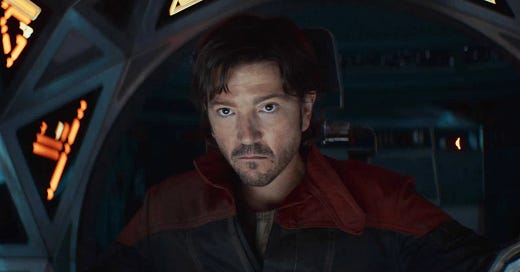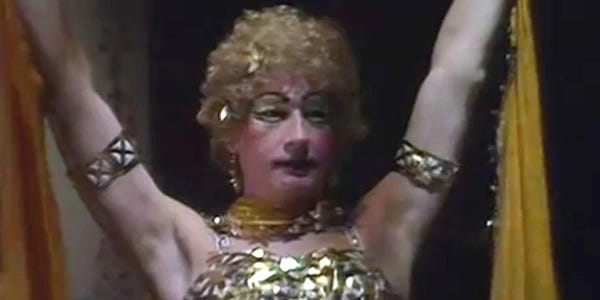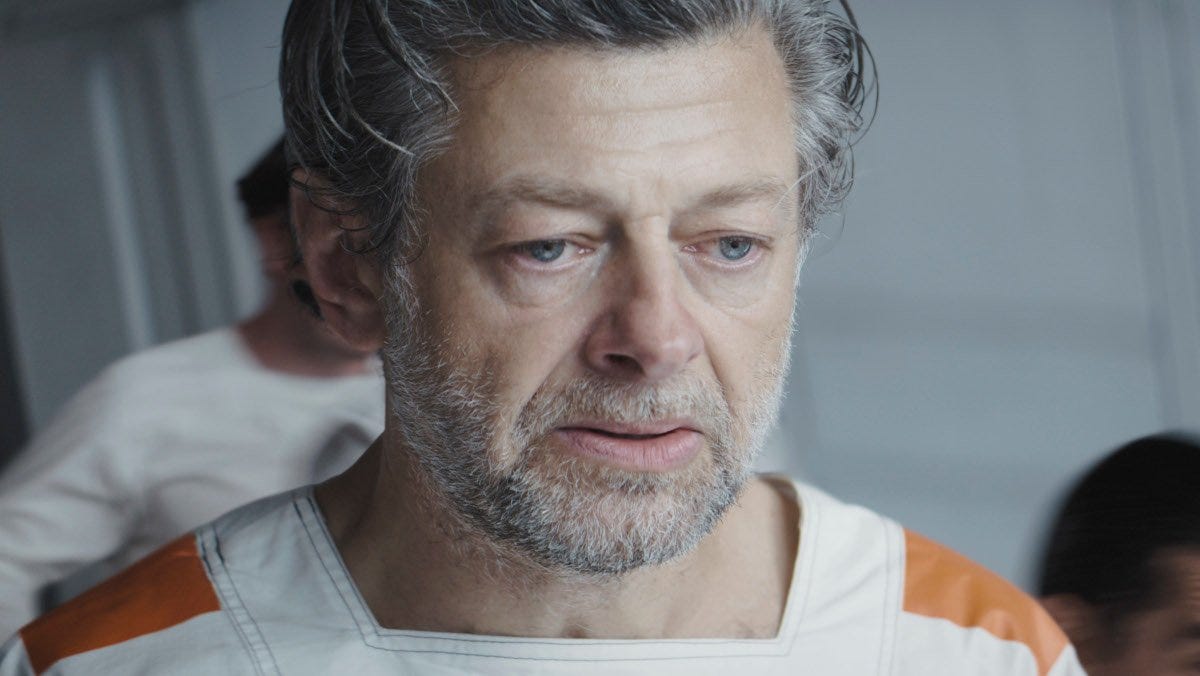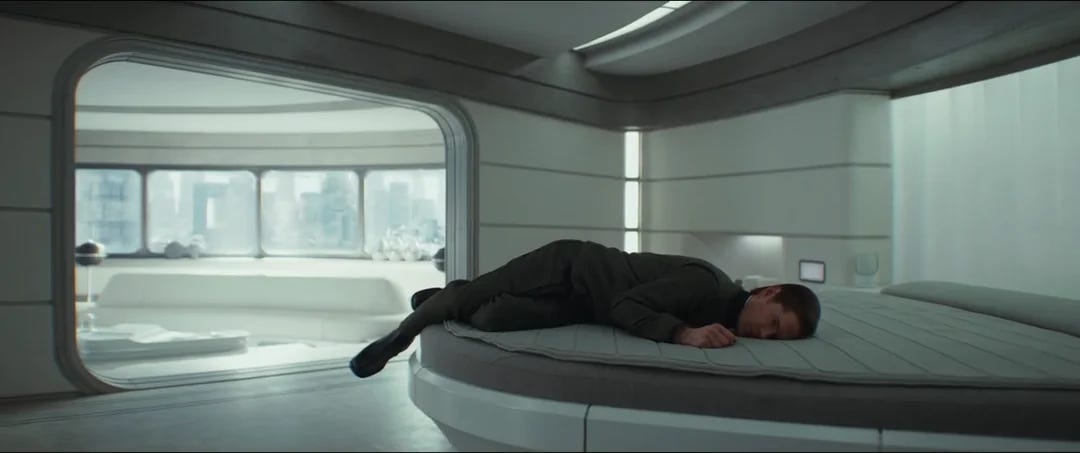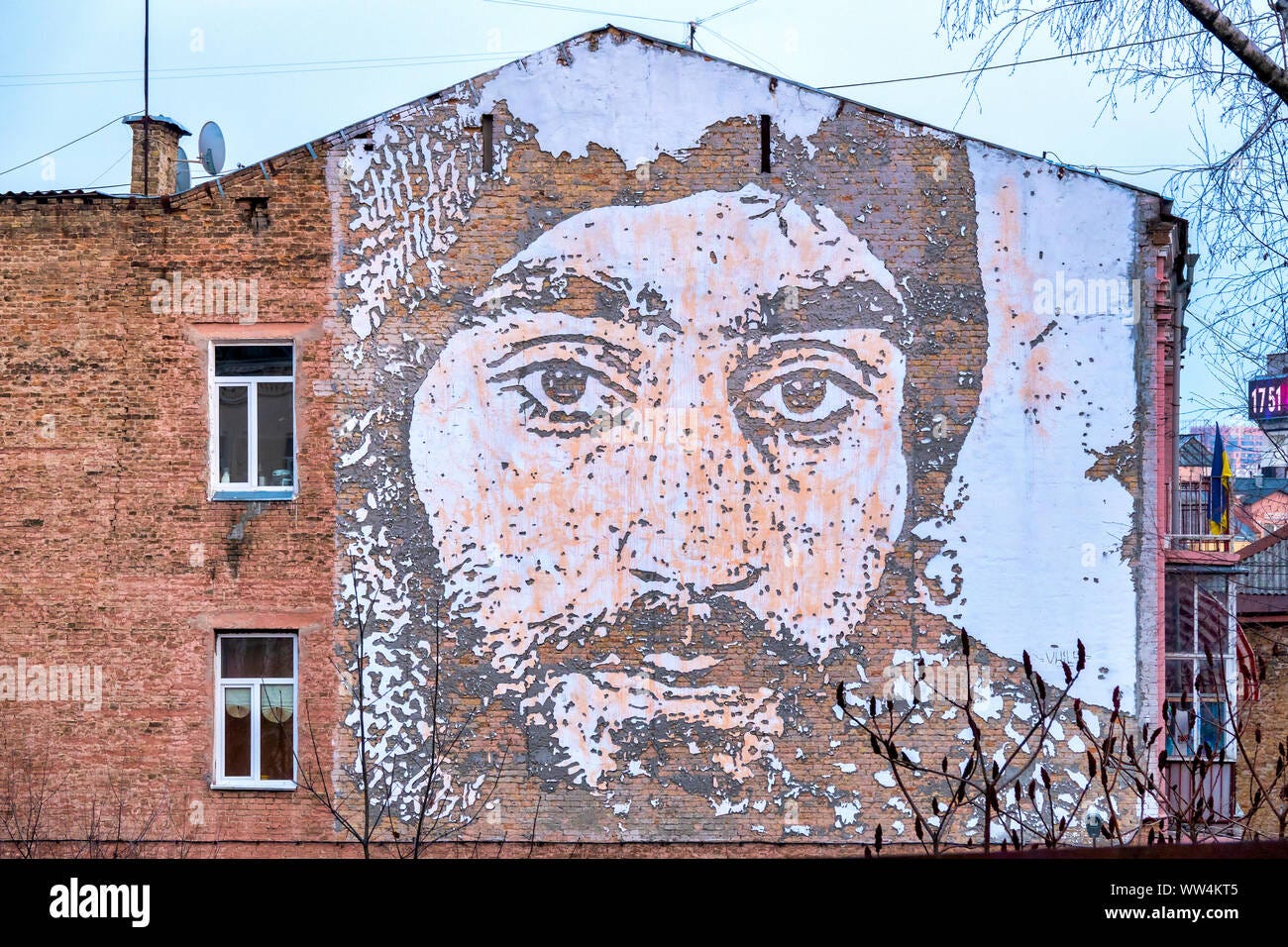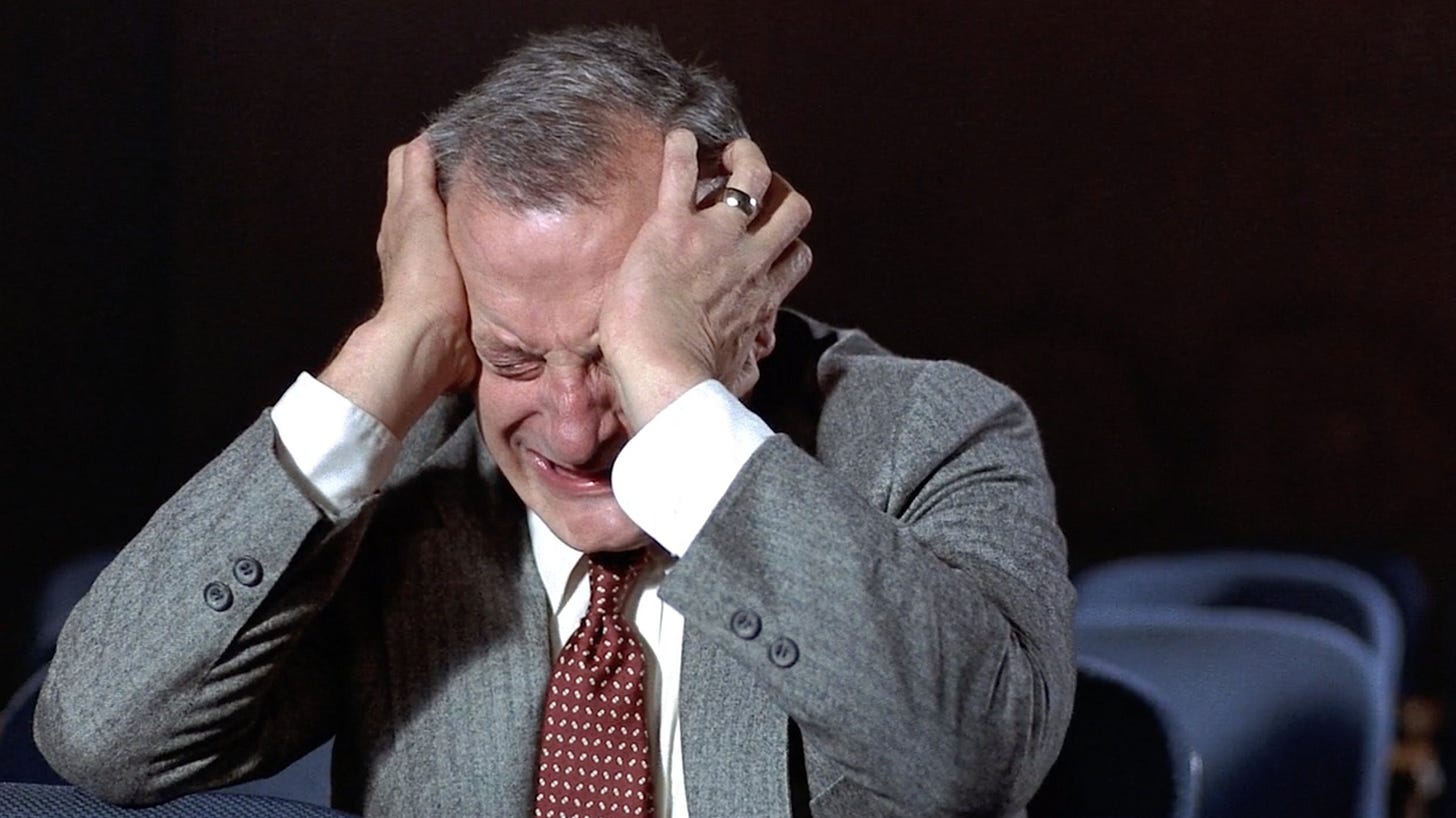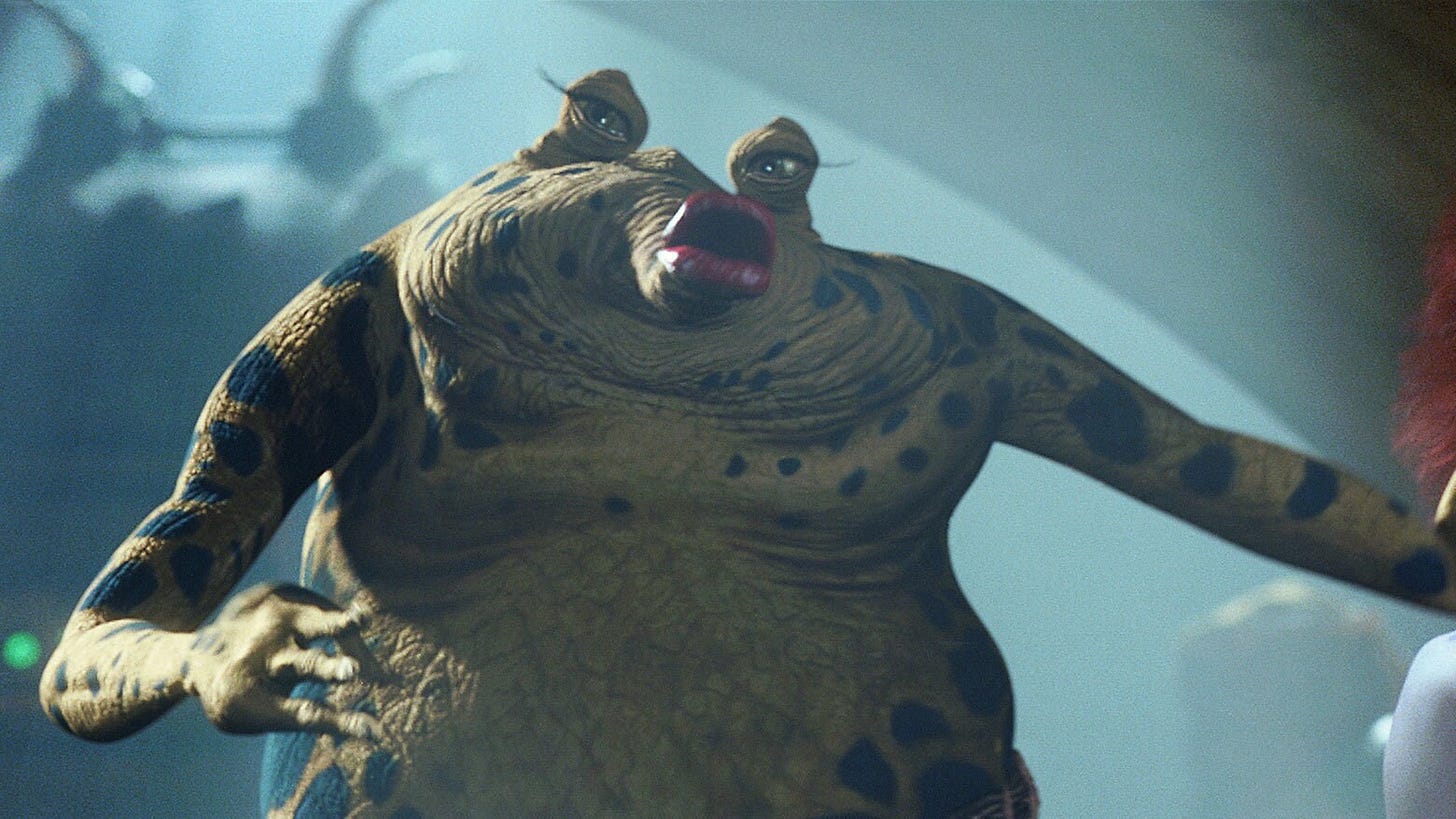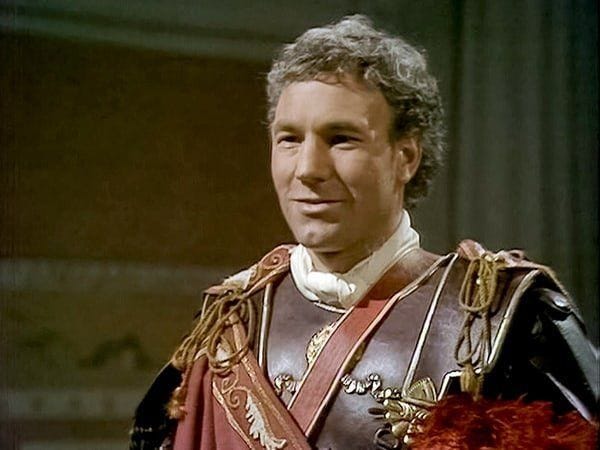Review for the First Half of Season Two
If I had a gun to my head (I'm the one holding the gun), I would say the first season is slightly better. To me, nothing can top the back-to-back arcs of the Aldhani heist and Narkina 5 prison. Everything about the first season was just so fresh and compelling. Don't let that fool you into thinking season two isn't also among the best TV ever made. That's just a testament to how good the first season was.
Star Wars lives and dies by the effectiveness of its characters. A New Hope was such a revelation because, yes, there were new and interesting worlds, fantastic creatures, spaceships, and all that jazz, but none of that would have mattered if we didn't like Han, Luke, and Leia. No matter how outlandish things got, we bought all of it because of the three of them. The prequels ultimately failed because the characters were so poorly realized. The sequels failed because the characters were based on what JJ Abrams and Kathleen Kennedy thought Star Wars characters were supposed to be, with that taking priority over making them three-dimensional human beings.
In episode nine, Claudius is awoken suddenly in the middle of the night and dragged by praetorian guards into a dark room with two senators. Fully aware of Caligula's reign of terror, killing anyone and everyone at will for any arbitrary reason, they are prepared to meet their doom. Unexpectedly, candles lower from the ceiling to brighten up the room. Emperor Caligula prances about, emerging from the darkness before them, scantly clad in the guise of the rosy-fingered goddess Dawn, complete with gold paint, a wig, and the most horrific drag makeup you've ever seen. It truly is one of the most grotesque sights you've ever seen. Jon Hurt is fully committed to this part. He prances about as a woman while whatever the Roman equivalent of an opera singer was (a bard?) sings a song about Dawn, and actors act out the scenario with Caligula.
Claudius and the two senators watch dumbfounded. You see, Claudius is a "fool". He has a stammer and a lame leg. He's part of the royal family, but nobody pays much heed to him. He's Caligula's old, harmless uncle. Having said that, being harmless or old never stood in the way of Caligula bestowing a nasty death upon that person. Hell, he had his own prepubescent brother killed (you see Gimli from Lord of the Rings carrying the kid’s decapitated fucking head and it looks shockingly real) because Caligula claimed he could hear his constant coughing throughout the palace.
Essentially, Claudius believes he's about to die. When the performance ends, Claudius is the first to start applauding uproariously. You see, Claudius isn't so foolish and lame. The act has kept him alive when nearly every male in his family has either been poisoned or met another grizzly, untimely death. The other senators follow suit. When Caligula asks Claudius what he thought of the performance, he says, "It was indescribable". That's the thing about Claudius, he never lies. He’s able to sneak in his insults in a way that the offended party will never know it’s an insult. While stuck with another future tyrannical emperor, Nero, Claudius is forced by Nero’s mom to listen to the pudgy little shit badly play his lute or harp or whatever the hell it is. I’m not Roman, I don’t give a shit what they played, I’m a proud Etruscan through and through. I did a 23andMe and I’m mostly Etruscan with a little bit of Visigoth. After the performance, tired and drunk, Claudius replies, "Very musical," which, by any definition, the playing of an instrument, well or poorly, is indeed musical.
This has nothing to do with Andor.
I want to talk about the characters from both seasons who left the largest impression on me. The first is Kino Loy, played brilliantly by Andy Serkis. When he first showed up in episode eight at Narkina prison, my brain had difficulty registering it. Hadn't he already played that schlock clown Snoke? What's he doing here? When we first meet him, he's a stickler for the rules. A fellow prisoner, for sure, but someone who doesn't seem like they'll be receptive to any of Cassian's antics. He believes if he keeps his head down and follows protocol (completing the appropriate labor output in a given day), he'll eventually be released, as he was told. He isn't aware of the true dystopian nature of this prison.
Something Andor does exceedingly well is that characters are rarely the same person they were by the end of their screentime as they were at the beginning. It's almost like they have an arc or something. It might seem shocking these days with the amount of slop that comes out, but once upon a time, characters went through changes, grew, evolved, and had fulfilling arcs.
It's easy to forget Kino Loy is only in three episodes in a twenty-four-episode show, considering his character's impact.
Once he realizes it's impossible to deny reality and that whether he is to die by a blaster or die rotting away laboring for the Empire, his fate is to die. Nobody is leaving the prison. While it is Cassian who gets the ball rolling on planning the escape, he realizes he doesn't carry the authoritative weight that Kino does among the men. Cassian isn't looking for glory or credit; he pushes (guides) Kino into becoming the ringleader of the escape. This leads to Kino giving an incredible speech encouraging the men to fight back against their oppressors and saying that it's better to die fighting than give the oppressors what they want.
The look on his face here is haunting.
Something that almost always works in media for me is seeing the good guys, the oppressed, the victims, who have suffered for so long, finally get their comeuppance against the bad guys. It's incredibly satisfying to see the prison guards cowering in fear as the inmates take over the facility.
The heart-pounding scene culminates with the inmates reaching the top level, only for it to be revealed that they are surrounded by the ocean. Kino must have known this, as when Cassian is flown in to be locked up, the inmates can see the water from their ship. This explains why he is hesitant to escape and holds onto the belief that with good behavior, he'd be let out. The last moment he and Cassian share together is Kino accepting the irony of the situation with the line "I can't swim". Before Cassian can react, he's pushed into the water by overzealous inmates. They never get to have a goodbye, commiserate their escape, or see each other again. It's absolutely devastating.
As Luthen later demonstrates in another fantastic speech in the same episode, Kino fought for the sunrise of someone else's future, one who wouldn't live to see it. Whether he died in the water or being shot by one of the guards, we will never know.
Before season two came out, there were rumors that Andy Serkis would be back. I was dreading this. My dread wasn't because I wouldn't be happy to see one of my favorite performers again, but at the possibility of ruining such a profound moment. Star Wars under Disney has been known to do that (somehow, Palpatine returned).
As a character, Kino represents the beauty of something so good that it is short-lived. It's hardly likely the Lukes or Hans or Landos of this saga will ever know Kino exists, just as no one in his family (if he even had one) will ultimately know what his fate was.
Next on the list is my boy Syril Karn. In a sense, he’s the second most important character after Cassian, seeing as his desire to get justice for two murdered douchebag colleagues is the entire catalyst that sets off the chain of events for the show.
Apparently, some fools on the web are angry that some fans sympathize with Syril because he's the bad guy, and things are black and white. I'm going to pose a question I don't have an answer to: Is anyone who supports a morally reprehensible system always and unquestionably evil without leaving room for the possibility of nuance? I don't know.
My interpretation of Syril is that he's someone who holds the law to be a moral, objective truth. Anything that deviates from that is bad. I never got the impression he was someone who thinks suppression and oppression are good, but likely due to years of Imperial propaganda and indoctrination, he saw the rebels as wanting to sow chaos and violence, a clear contradiction to the order and prosperity at the heart of Imperial morals.
That’s why, whether dickheads or not, he is so upset in the first episode that his supervisors have no desire to look into the murder of his colleagues.
Syril’s attempt to capture Andor is completely botched, leading to the deaths of even more colleagues. Oh, so often a person's ambition far outweighs any actual skills they may have, which is a thought I have about myself quite frequently.
This has nothing to do with in-universe workings, but unless proven otherwise, I’m pretty sure Syril is the only character in the show with an American accent. Is whatever Forrest Whitaker doing as Saw Gerrera something that can be called American?
Syril’s arc culminates in the second season’s third arc (episodes 7-9), which will probably go down as the series’ most remembered storyline.
As mentioned in my previous review, Syril has been stationed on Ghorman, where the locals think they can turn him, when in reality, he's feeding information to Dedra and the ISB.
Ghorman protests have only grown in intensity. Imperial mainstream media has come to the planet, cameras rolling, depicting the Ghor as violent agitators with no regard for law and order. Something doesn't sit right with Syril. He still has eyes and ears after all and sees the building of an armory, an armada in the atmosphere, and mining vehicles, not a valid response to merely contain Ghorman protestors. Beyond that, the presence of Stormtroopers is overkill, considering none of the protestors have committed any violence.
Syril confronts Dedra about this, going so far as to choke her to get the truth (I see you Hayden Christensen). Syril admits to himself that Dedra has been lying to him this whole time. She reveals that all of this is to mine the khalkite for the Emperor’s energy initiative.
Part of Syril genuinely believed the woman he loved wanted his help due to his skills and enthusiasm to prove outside agitators were trying to coerce the Ghor to form an uprising, only for it to turn out to be that Kyril was the outside agitator. He has the realization that he is responsible for the violence that is about to occur on the planet.
Not only were his promotions based on lies and manipulations, but he was also used by the woman he loved. Did she ever love him? Is someone like Dedra even capable of love? As someone who is a genuine psychopath, what would that even mean to someone like her?
Syril joins the Ghor outside, his last words to Dedra being “Good luck”.
The Imperials watch on, waiting for the Ghor to start the violence, but something happens. Amid the shouting and protests, one of the Ghor starts singing the planet's anthem. The Ghor next to him then starts singing, and eventually all the Ghor are singing, arms around one another. It is completely peaceful. It's one thing to blame an aggressive crowd for being violent. Therefore, the use of force is necessary, but where is the justification for attacking a crowd that is singing peacefully?
I mentioned how authentic the Ghorman language sounded in my previous review, and the way it sounds with this anthem is beautiful. I would learn this language over French in a heartbeat. Over the course of five episodes, Gilroy and his team have made this planet and its culture feel completely real.
A group of very young and inexperienced Imperial troops who can't even understand basic drills are told to do a patrol in the middle of the Ghorman crowd. The sergeant questions this, knowing his men aren't up to the task, and that's precisely what the officers are counting on.
Seeing that the Ghor won't draw first blood, Dedra and company give the order for an Imperial sniper to draw first blood. He takes aim, killing one of his own men. The Imperial patrol, seeing this, begins to open fire on the crowd of Ghor. The Ghorman Massacre has begun.
Now I'm going to make things about me for a minute. This is my page after all, and I reserve that right. In January of 2022, an event took place in Almaty, Kazakhstan, receiving next to no coverage in the Western media. Protests broke out near City Hall, right outside my apartment window. The government response to shut off the internet in the entire country to hopefully prevent protests from getting bigger didn't do a damn thing. Non-lethal bullets and stun grenades eventually turned into shoot-to-kill orders for anyone outside.
Even now, it isn't clear who exactly the protestors were, who organized it, whether there were outside agitators, or whether there were different groups with different goals. Who knows? All I know is there was a week straight of shooting and bloodshed, and almost 300 people lost their lives. Were some of them bad people? I can't answer that, but I can say that when people with guns shoot into crowds, innocent people are the ones who will suffer the most.
I've met only two people from Astana who found this use of force justifiable, saying that such measures need to be taken to restore stability. Most of my friends here don't see it this way and see the government's response as excessive.
My point is, for a scene that is already harrowing on its own, I came into it with my own baggage.
Furthermore, I used to live in Ukraine. Watching the Ghor signing their anthem, I couldn't help but think about the protestors at Maidan in Kyiv in 2013 and 2014. Serhii Nigoyan was the first protester at Maidan killed by gunfire in 2014. He was only twenty years old. In an interview asking why he came to protest, he said it was to speak out against the beating of students. For that, he was shot and killed.
The Empire got the violence they needed, but to anyone who isn’t blind and hasn’t fully drunk the Imperial Kool-Aid, it was pretty clear who started the aggression.
Syril watches on in complete horror, aware that not only were the past years of his life built around a lie, but that he is complicit in what is occurring around him. My boy Syril was all about the rule of law, but even for a diehard like him, genocide was not what he signed up for.
Of all the events to take place that day, it’s safe to bet running into Cassian Andor, the person who initially ruined his life and set him down this path, was right there in the thick of it. In a moment of rage, having lost his woman and beliefs in right and wrong, he attacks Cassian. Unbeknownst to Syril, he attacked right as Cassian was about to assassinate Dedra with a sniper rifle, inadvertently saving her life.
What follows is a visceral and gritty fist fight, more brutal than anything we’ve seen in this franchise.
Going into season two, I was curious as to what Syril's fate would be. The first season sets him up as an antagonist, but he isn't the villain of the show. The show wouldn't climax in a confrontation between Syril and Cassian because stopping Syril isn't what the show is about.
Syril is able to get hold of a blaster and point it while Cassian is on the ground. Cassian has no way to defend himself; he simply asks, "Who are you?" Now, this line can be interpreted in one of two ways. The first interpretation is that Cassian genuinely has no idea who this man is. For most of Cassian's life, he's been running into and avoiding people who have been trying to kill him or extort him. Why would he remember one rent-a-cop he briefly met four years ago? The second interpretation is that he does recognize Syril, and his question is more wondering why this rent-a-cop, after all these years, is still holding such a grudge against him.
In any case, Syril lowers his weapon. He sees no reason to kill Cassian. As Ghorman collapses around him, so too does his entire life. Killing Cassian won't bring him glory or resolution. In any case, Syril is not given much time to reflect; he is shot in the head by Rylanz, the leader of the Ghorman front (whose daughter has died in the massacre).
I was left shaken by Syrl’s death. Genuinely curious as to what his arc would be, I can say I definitely didn’t think it would be this. It’s truly tragic. As hilarious as all of his interactions with his mother were, the way she constantly berated and humiliated him, did he ever have the chance to become anything else?
It's unlikely Dedra will ever know how he died, and in the franchise's long history of heroes and villains, Syril Karn will likely be forgotten in the grand scheme of things. I imagine in-universe history books being written, and if the events on Ferrix are mentioned at all, it'll likely be along the lines of "Corporate security sent a squad to capture Cassian Andor, but they failed their mission" without the mentioning of any names.
This show truly turned Mon Mothma into one of the all-time memorable characters. In both seasons, but especially season one, every line of dialogue and her interactions with other dignitaries and her family reminded me of the best parts of Game of Thrones, in the early seasons when we got all the great interactions with Tyrion, Varys, and Littlefinger. The type of dialogue where what's not being said is as important as what's being said.
After the massacre on Ghorman, the Empire is doing a purge throughout the senate, arresting the senator of Ghorman without any due process. The official narrative is that Ghorman started the violence, and Imperial media is hitting the galaxy over the head with the names of the fallen Imperial heroes who lost their lives. She plans to present a speech at the senate for all the galaxy to see, calling the event what it was, a genocide, and laying the blame publicly at the feet of Emperor Palpatine, something nobody else in the senate is willing to do.
Before giving her speech, Luthen tells her that the extraction team to pick her up and take her to the hidden rebel base has been compromised. In their stead, he plans to send Cassian. At the moment, she wants nothing to do with Luthen, but she discovers one of her trusted aides has been working for him all along. Even though she and other rebels are all on the same time, much of the aristocracy either resents Luthen or is disgusted by his methods, supporting the cause of rebellion but not wanting to get their hands dirty.
This section gives us some screen time from everybody's favorite character, Basil Oregano, Princess Leia's adoptive father, originally portrayed by Jimmy Smits. Apparently Star Wor fans hold this character in high regard because there was so much bitching and moaning when news broke out that he was recast and Benjamin Bratt (vatos locos forever!!) would be taking over the role.
Look, Basil Oregano is only important to nerds who do deep dives into the lore. The only important act he does in all of the prequels is to adopt Leia. But if we look at the character purely as presented to us in the films George Lucas wrote (comic books and novels and cartoons don't count), then he's essentially a nonentity who has all of ten minutes of screentime throughout the entire trilogy if I'm being generous. Yes, it's a shame that, for whatever reason, Smits couldn't come back, but Bratt is in Blood in Blood Out and rolls with Miklo. Therefore, he's a better actor.
The vato loco Basil and Mon are the two political founders of the rebellion. After making her speech attacking Palpatine, Mon will flee, while Basil will stay behind in the senate and try to run things from there.
Giving the speech isn't so simple. The Empire, aware that senators like Mon are "agitators", created a strict agenda for the day. Basil, allowed to speak that day, uses his vato loco skills and brings up an emergency protocol introduced by Palpatine himself, which enables one senior senator to cede the floor to another, in this case, Mon.
In a show full of great speeches, Mon’s is another. It’s a very emotional moment. The moment that sticks out the most to me would have to be: “The distance between what is said and what is known to be true has become an abyss. Of all the things at risk, the loss of an objective reality is perhaps the most dangerous. The death of truth is the ultimate victory of evil.”
What’s remarkable is how this was, if not mistaken, filmed back in 2023, before Trump’s second term, but it could just have easily been about him. It can be about any autocrat. Nothing is true and everything is possible. In a post-truth era, we don’t have enough public figures willing to make such statements.
Her escape attempt is a lot of fun, especially the faces she makes whenever Andor blasts someone in the face. It's very satisfying to see Andor take out her driver.
Mon's arc essentially ends in episode 9, meaning we see very little of her in the remaining three episodes. It's a shame, but not because the show is bad without her, but because she was such a good character, we yearn to see more. So much of my dislikes about the show don't even stem from what's in it, but from intensely wanting more. That's one of those good problems.
Dedra Meero, as played by Denise Gough, is absolutely terrifying. Denise said she studied female psychopaths in preparing for the role, and it shows. During one of the early season two episodes, while looking at the mirror in preparation for dinner with Syril's mom, she smiles for the first time, and it's terrifying.
She believes in the tenets of the Empire through and through. Being the savvy ISB officer that she is, you have to question whether she ever actually loved Syril or not, or if she understood his utility as a useful idiot. I think crushing rebels takes priority over any personal relationship for Dedra.
In season one, it was Dedra who connected the dots of rebel activity throughout the galaxy and hypothesized that, rather than being random, unconnected events, there had to be a ringleader at the center of it all—Axis, who we know is Luthen.
Within the first ten minutes of episode ten, Luthen destroys all the comms evidence in his shop. Lonnie, his ISB informant, has told him that Dedra is not only on to him but also that Ghorman and a dozen other things are connected. Palpatine's energy initiative doesn't exist. To anyone who knows even the bare minimum of Star Wor, we know this alludes to the Death Star.
Luthen passes all the information he can to Kleya before going to destroy evidence at his shop (also, he kills poor Lonnie in the process. This scene deeply saddened me. I knew it was inevitable. From the moment we learned Lonnie was an informant, I knew he’d either be caught by his own or be taken out as a loose end by Luthen, but it didn’t make his death any less sad. There would be no Luke destroying the Death Star without Lonnie discovering what he did and passing it on to the rebels. What will become of his wife and child? We don't know. In the show, after discovering his body, the ISB never learned he was giving intel to the rebels, meaning it's highly likely in his obituary it'll be stated he died a loyal Imperial employee, meaning his name will likely be forgotten. The rebels won't know what he sacrificed for them.
As Luthen is pouring a dissolving solution over the comms, there's a call at the front door. It's Dedra. She comes in with a smile and starts asking him about his shop. I turned to my friend and said, "I hate everything that is happening right now in the best possible way".
Once more, using only dialogue between two characters to build tension is expertly crafted.
From the moment Luthen gave his powerful monologue in the first season about his sacrifice, we knew he was doomed. I thought of the various ways his character might meet his fate. My biggest fear would be that he’d be captured alive and publicly paraded and humiliated by the Empire for all to see. Well, apparently Luthen read the script because he had the same thought and commits seppuku before Dedra can take him in.
He's taken to a hospital commandeered by the ISB, only just hanging on to life. It is here we finally learn his backstory and I am so relieved he wasn't a fucking Jedi. Fan theories had been circulating since the show's first season, mainly because his spaceship seemingly had some kind of lightsaber-adjacent weapon. Thank Christ that wasn't the case.
He was an Imperial sergeant who could no longer take the mass murdering going on in the name of the Empire. He’s screaming “make it stop” to himself to drown out the screams and explosions in the background. This scene reminded me of George C. Scott screaming “Turn it off” from Hardcore, and for just a second, I thought about what a gift it would have been for George C. Scott to have played Luthen. Everyone watch The Exorcist III, aka Legion, it's simply the best. During the massacre, on whatever planet it is, he meets Kleya as a little girl. He essentially becomes her surrogate father. We also learn that it was Kleya, not Luthen, who was the spark that started the rebellion.
Children are the ultimate victims of war, and it's fitting that Kleya would be the catalyst to start the resistance against Palpatine. It's also a nice touch that when Luthen finally gives her what she wants, his first act of violence against the Empire is on Palpatine's home planet of Naboo, so how's that for symbolism?
I had already liked Kleya in season one when she was the shop assistant/comms supervisor. I like characters in shows or movies who have minimal screentime yet are competent and tactical, and you know there is an interesting backstory to them, whether you see it or not. Luckily, Kleya's expanded screentime in season two enhances rather than diminishes her character.
Kleya infiltrates the hospital where Luthen is being kept in a badass scene combining stealth and just straight-up murking Imperials. She arrives at Luthen's room and does precisely what I was afraid she'd do, but knew was the only option. She removes his breathing tube, gifting him the mercy of death, not subjecting him to torture and forced confessions.
Andor is not the type of show that gives its heroes grand, heroic deaths. It's either in a way that's unexpected, unremarkable, or simply sad and senseless. Having said that, it's fitting that nobody could kill Luthen but Luthen and his own daughter. It's one of the hardest choices a character has to make in this show, but she did it for the father figure she loved (though it's highly doubtful she ever used the word; they didn't have that type of relationship).
Kleya gets the information Luthen passed along to Cassian about the Death Star. Back on the rebel base, two petulant prick senators dismiss Cassian's story, saying Luthen isn't a reliable source. These characters are annoying for sure, but their function is to show that while the rebellion is the good guys, much of their power comes from old school, establishment politicians, people who turn their noses up at the ilk of Luthen. These wealthy, privileged intellectuals see people like Luthen as inferiors, even though he clearly has a more vivid and better understanding of the big picture. The rebellion was started by people like him and Kleya, whereas they will be the public faces who try to take all the credit for it.
As sad as Luthen's ultimate fate was, it's heartwarming to see Cassian so adamant that people know it was he, Luthen, who risked his life for the rebellion and to spread the news of the enemy's new superweapon.
Something this show excels at is even when characters get what they want, it’s either not how they want it or at the expense of something else. Dedra captured Axis, but she overplayed her hand. They weren’t able to get any useful information out of him, she overstepped her jurisdiction, and it landed her in jail.
In a very chilling scene, Dedra is interrogated by Director Krennic. Something this show does so well is show the pecking order of the Empire, and how any officer, regardless of rank, is useful and appreciated only for so long, but anyone is disposable, and those in power are more than willing to throw their underlings under the bus. This recontextualizes Director Krennic being thrown under the bus by Tarkin in Rogue One, as we see him do the same thing to Dedra.
Not only did Dedra botch the Axis operation, but now Krennic is accusing her of being a rebel spy. In something too funny to be fiction, Dedra was accidentally added to a group chat that included information about the Death Star, which she was not meant to know about. Her having this information led to Lonnie Jung becoming aware of it, which is how the information about the super weapon passed on to Luthen.
Dedra technically is victorious. She got Axis, she captured him, but in doing so, she loses her rank and privileges, loses her lover, is responsible for the untold deaths of innocents, and in the cruelest of cruel fates, is sent to the same type of prison Cassian was in during season one. What a brilliant character. I cannot find a flaw in her arc and how she was played.
Partagaz. This character is flawless. This man was born to play an Imperial officer. I could watch an entire show that takes place in his boardroom, where he goes down the line shaming his subordinates. His line of “calibrate your enthusiasm” was one for the books.
When things go to shit due to leaks and Dedra, eventually the blame falls on him. In a fantastic scene, he is listening to Nemik's manifesto. Did Cassian leak it out? In any case, while Nemik is long dead and like Luthen and many other fallen heroes, he wasn't to live to see the better future he helped build, but his words echo throughout the galaxy. What is Partagaz thinking in the final moments of his life? Does he feel Nemik's words are sounding sensible? Does he believe his work was all for nowt? Is he relieved that, knowing he's going to take his own life, it's no longer his problem?
We don't see him shoot himself. Instead, the reaction is on Yularen, standing before two stormtroopers. They react to the gunshot, and he reassures them with a simple gesture. No dialogue needed. Who's to say fate doesn't have a sense of humor? Partagaz is dead, Dedra in prison, Heert dead, Jung dead, and Yularen, the most mediocre of all the ISB, the one who was constantly mocked by Partagaz, is the last one standing.
Before Partagaz does take his own life, what could be so bad that suicide is a better outcome? Well, anyone who has seen a Star Wor knows what happens to Imperial officers who fail at their jobs. It wouldn't even be memberberries to say logically, Vader would be the one to choke him to death, but Gilroy denies the audience that. We never see Vader or Palpatine, and I'm very happy about that.
Before talking about the namesake of the show, there is one more character to discuss.
Sy Snootles was first introduced in Return of the Jedi as one of the entertainers at Jabba's Palace. She was originally played by a puppet and sang the song "Lapti Nek," which was changed in the 1997 special edition of the film. She was enhanced with CGI, and the gaudy song was replaced by the kid-friendly "Jedi Rocks".
George really wanted to replace this based song Lapti Nek with this CGI war crime Jedi Rocks
Her appearance in the Ghorman massacre arc was a surprise for sure, a bit of a headscratcher, but Tony made it work.
Sy Snootles, also known as Miss Snooty, was a female Pa'lowick singer and part-time bounty hunter. The former lover of Ziro the Hutt, she killed him on behalf of his nephew, Jabba Desilijic Tiure, after Ziro abandoned her. Snootles was also a spy for the Hutt Clan and later become the lead vocalist for the Max Rebo Band. When it split up after Jabba's death, she resumed her solo singing career.
Originally from Lowick, Sy Snootles was a successful singer who dated Ziro, a Hutt crime lord who represented the Hutt Clan's business interests on the planet Coruscant. However, according to Ziro, his nephew Jabba Desilijic Tiure, forced him to send Snootles away from Coruscant, and while he promised to come back for her, he never did. A broken-hearted Snootles then became a spy for the Hutt criminal cartels and part-time bounty hunter.
In the year 21 BBY, a vengeful Snootles was hired by Jabba to kill Ziro and retrieve his holodiary, which contained the Hutt Council records. After entertaining the Grand Hutt Council at Gardulla the Hutt's Palace on Nal Hutta with a lavish musical number, she discovered that Ziro was incarcerated in the palace's dungeon, incarcerated by nonother than the leader of the praetorian guards, Lucius Aelius Sejanus.
While the Praetorian Guard was formally established under Emperor Augustus, Sejanus introduced a number of reforms which saw the unit evolve beyond a mere bodyguard into a powerful and influential branch of the government involved in public security, civil administration and ultimately political intercession; these changes had a lasting impact on the course of the Principate.
Sejanus is depicted wonderfully by Sir Patrick Stewart, with more hair and smarm than I’ve ever seen from the actor. He’s deliciously wicked in the role. It’s hard to see my beloved Picard being so dagnasty evil. Picard and George C. Scott’s character from Exorcist III are the two men I try my hardest to emulate.
Lastly, there’s Cassian. He never wanted to be a part of the fight. He’s just extremely unlucky, always in the wrong place at the wrong time (or is it the right place at the right time? Without him, there’d be no rebellion).
When we first meet him he’s in a lost boys type of situation, living in a jungle with no adults around. It’s here he gets separated from his sister and adopted by Marva and Clem. Looking for his sister is the catalyst that starts off the entire show. I have to say, I appreciate the restraint of not making his sister a big plot point of the show, especially some reveal that she was actually Dedra or Kleya all along. We didn’t need it. It shows that even from a young age, he’s dealt with loss. He couldn’t save his sister.
One plot point I'm still unsure as to whether I'm okay with or not is when Bix convinces Cassian to talk with a force healer about a wound on his shoulder. Enough praise has been heaped on this show due to its willingness to commit to showing no Jedi, making this inclusion seem a bit iffy. It doesn't help that it borders on chosen-one trope territory. The force healer indicates that Cassian is special. I feel like the audience could have pieced this together without it being spelled out.
In season one, we have the Aldhani heist, the first major setback for the Empire inflicted by the rebels, in which Cassian played a major role. Next, there is him orchestrating the escape of Narkina 5 prison, where he and Melshi then spread the word throughout the galaxy about how the Empire is illegally and unjustly making up prisoners' sentences as they go along. In season two, he is a firsthand witness to the Ghorman massacre and rescues Mon Mothma to safety at the rebel base.
Time and again, he's given all of himself to a cause he initially never wanted to be a part of. He's given more than should be asked of any one person. Bix, knowing he would choose her over the fight, makes the choice to leave in the middle of the night. By the time he sees the message she left for him, she's gone.
She sacrificed happiness with him, knowing he'd never be able to fully commit to the rebellion if she were around.
This recontextualizes Rogue One. In that movie, he was little more than a handsome fella with a cool accent. We knew he was willing to get his hands dirty to get results. We didn't know he was willing to leave it all behind before the events of the movie. Moreover, the final shot of season two reveals Bix gave birth to their son. It's a devastating ending. Will Bix ever know that he died? Even if she can guess it, will she know the circumstances of it? Will she know the father of her child was one of the most critical factors for the victory of the rebels?
Her foresight was spot on, as the rebels did need Andor, but will she ever know? It's a powerful note for the show to end on. Luke Skywalker, Han Solo, and Princess Leia are the romantic heroes that propaganda needs to sell a war. Cassian, Luthen, Kleya, Nemik, these are the people who made the rebellion happen, who were willing to do what was necessary when the politicians and wealthy were too afraid to speak out against the status quo.
I’m in awe of how well done this show is. It’s bittersweet, it only being two seasons. It’s also bittersweet that it all leads to Rogue One. I'm not in the camp that hates the movie, like my favorite YouTube channel (Redlettermedia), nor do I gush over it and think it's the best Disney era Snar Wor moopie. The way I see it, it's visually great, probably the best Star Wars has ever looked. There's a scene where a Star Destroyer emerges from the shadows and is then eclipsed by the Death Star. Star Wars tech has never looked better.
The final action set piece on Scariff is thrilling. This movie is the cinematic equivalent of when I got all my Star Wars toys as a kid and smashed them all together without rhyme or reason for who was killing what. It's fun! The characters are quite thin, and there are far too many memberberries.
The two seasons of Andor definitely recontextualize things, but it's hard to reconcile that a character like Saw Gerrera is written masterfully in the show, whereas he's an absolute schlock clown in the movie. The lead-up to the film, all the sacrifices the rebels made, and especially Cassian, do make the ending more impactful, and therefore, it makes A New Hope more impactful. In an ideal world, Rogue One would be remade with Tony Gilroy at the helm, either as a movie or as season three of this show. Disney, take my money and make this happen.
My final thoughts are a shout out to all the characters I couldn’t do a deep dive on but who nonetheless deserve a mention: the twink hotel bellhop Cassian was eye-fucking, the twink who used to be Dedra’s assistant, but then got promoted and was ready to throw her under the bus, only to get his neck cracked by K2SO and used as a human shield, Melshi for showing up, the twink Nemik for his manifesto summing up the themes of the show, Eedy for being such a pest to Syril, Sejanus for being Patrick Stewart, George C. Scott, the Imperial who helps Cassian steal the Tie Fighter for her big fat ass, and Rylanz for being the German who gets his head bashed in by the Bear Jew.
Now enough with this kiddie Snar Wor crap, coming up next will be my 130,000 word I, Claudius review.

